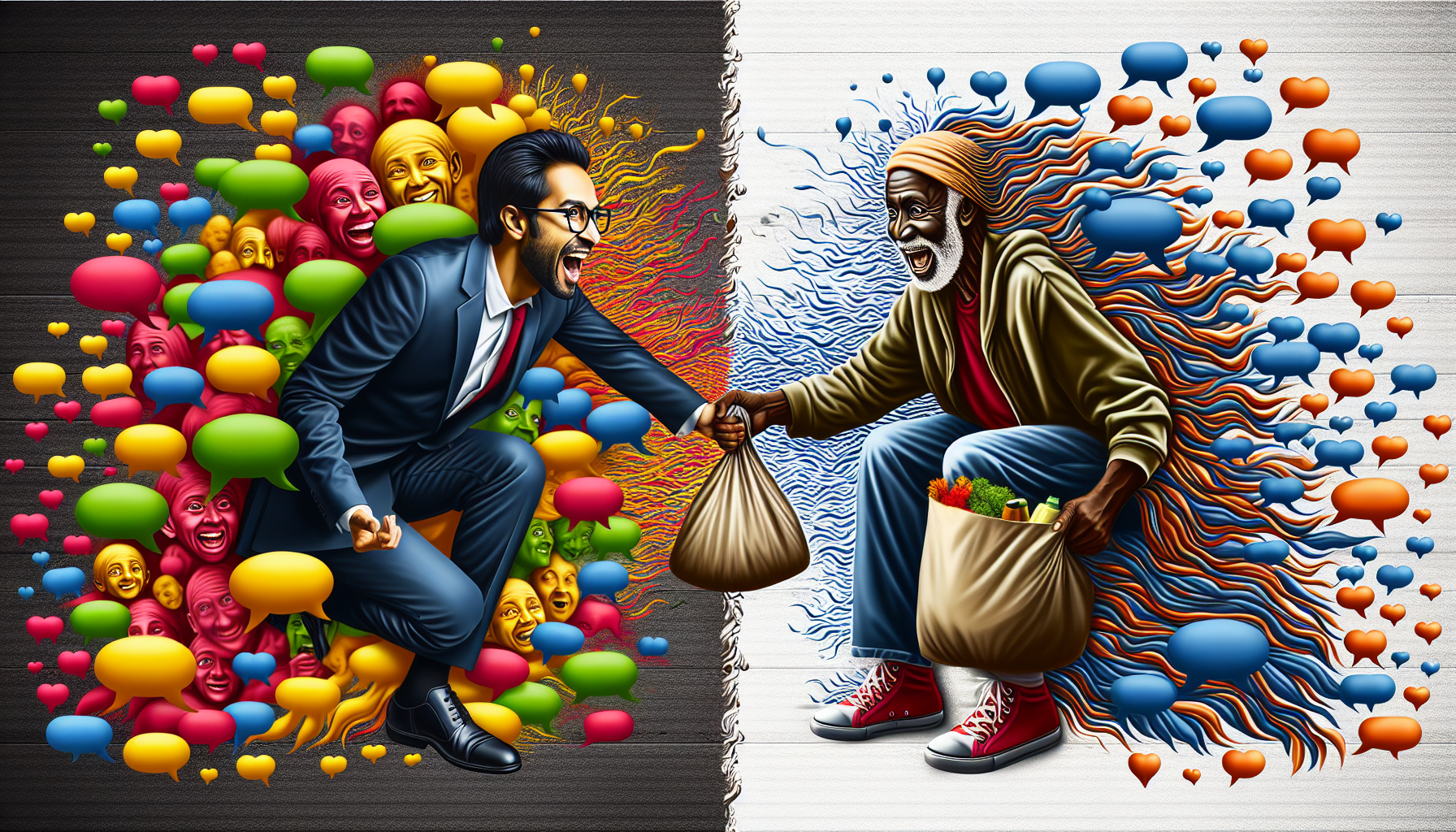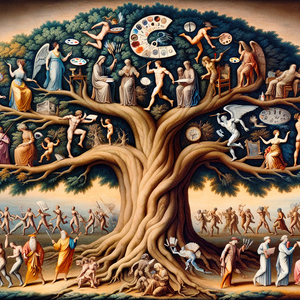The Evolution of a Literary Empire: J.K. Rowling’s Journey from Struggles to Global Phenomenon

J.K. Rowling conceived the idea of Harry Potter during a train journey from Manchester to London in 1990. However, the path to publication was fraught with challenges. After completing the manuscript for "Harry Potter and the Philosopher's Stone," Rowling faced a barrage of rejections from publishers. It wasn’t until 1996 that Bloomsbury finally accepted her work. The book was published in 1997, and its immediate success set the stage for Rowling’s rise. This initial struggle underscores an essential aspect of her journey: the importance of resilience and unwavering belief in one’s creative vision. Rowling famously stated, “It is impossible to live without failing at something unless you live so cautiously that you might as well not have lived at all.” This sentiment reflects her tenacity and determination in the face of adversity.
The Phenomenon of Harry Potter
The release of the Harry Potter series marked a significant turning point, not just for Rowling but for children’s literature as a whole. Over the next decade, seven books were published, captivating audiences with their rich narratives, relatable characters, and imaginative world-building. The series sold over 500 million copies worldwide, making it one of the best-selling book series in history. This remarkable success ignited a global phenomenon, leading to a surge of interest in fantasy literature and inspiring a new generation of readers. Rowling’s ability to weave themes of friendship, bravery, and the battle between good and evil resonated deeply with audiences of all ages, establishing her as a master storyteller.
The Cinematic Expansion
The transition from page to screen was another pivotal moment in Rowling’s career. The first Harry Potter film, released in 2001, was a blockbuster hit, grossing over $974 million worldwide. This achievement not only solidified Rowling’s status as a significant figure in the literary world but also opened up new revenue streams. The subsequent films, based on each book, further enhanced her wealth and visibility, with the entire film series grossing over $7.7 billion globally. The films brought the beloved characters and rich storylines to life, reaching audiences who may never have picked up the books. Rowling’s involvement in the film adaptations, including co-producing and writing screenplays, ensured that the essence of her story was faithfully represented, further solidifying her legacy.
Thematic Parks and Experience Economy
Rowling’s influence extended beyond books and films with the introduction of theme parks dedicated to the Harry Potter universe. The Wizarding World of Harry Potter, located in Universal Studios, opened in 2010 and has since transformed into a major attraction, drawing millions of visitors each year. The parks celebrate the legacy of the series and serve as a significant economic engine, generating substantial revenue through ticket sales, merchandise, and themed experiences. This strategic expansion into experiential entertainment illustrates Rowling’s keen business acumen and her ability to adapt to changing consumer preferences. Visitors to the parks often describe the immersive experience as a dream come true, further highlighting the cultural impact of her work.
The Stage and Beyond
In addition to films and theme parks, Rowling embraced another medium: theater. The play "Harry Potter and the Cursed Child," which premiered in London in 2016, received critical acclaim and numerous awards, further extending the Harry Potter narrative into new artistic realms. This venture not only showcased the timelessness of her story but also contributed significantly to her financial portfolio. The play’s innovative two-part structure and immersive storytelling captivated audiences, creating a new fanbase and reinforcing Rowling’s status as a versatile storyteller.
J.K. Rowling’s evolution from a struggling writer to a literary empire illustrates the profound impact that creativity, resilience, and strategic thinking can have on one's career. Through her ability to adapt her work into various formats—books, films, theme parks, and theater—Rowling has not only achieved monumental financial success but has also left an indelible mark on popular culture. Her journey serves as an inspiration for aspiring writers and entrepreneurs alike, proving that with vision and determination, the possibilities are truly limitless. As we continue to explore new adaptations of her work and the ongoing legacy of the Wizarding World, it is clear that Rowling's influence will endure for generations to come. Her story is a powerful reminder that even the most magical journeys often begin with struggles and setbacks, ultimately leading to extraordinary outcomes.
Literary Agent
Literary agencies, publishing houses, and media companies
Core Responsibilities
Represent authors in negotiations with publishers, ensuring favorable contract terms.
Scout for new talent by reviewing manuscripts and attending literary events.
Provide guidance to authors on market trends and career development.
Required Skills
Strong understanding of the publishing industry and market dynamics.
Excellent communication and negotiation skills.
Proven ability to identify and nurture promising literary talent.
Screenwriter
Film production companies, television networks, streaming services
Core Responsibilities
Write original scripts or adapt existing literary works for film or television.
Collaborate with directors and producers to develop story arcs and character development.
Revise scripts based on feedback from stakeholders and audience testing.
Required Skills
Proficiency in screenplay formatting and storytelling techniques.
Ability to work under tight deadlines and manage multiple projects.
Strong understanding of visual storytelling and character arcs.
Theme Park Experience Designer
Major theme parks, entertainment conglomerates, and creative agencies
Core Responsibilities
Conceptualize and design immersive experiences that enhance visitor engagement within theme parks.
Collaborate with creative teams to integrate story elements into rides, attractions, and themed environments.
Oversee the execution of design concepts, ensuring alignment with brand narratives.
Required Skills
Background in architecture, interior design, or themed entertainment design.
Strong project management skills and experience in collaborative environments.
Creative problem-solving skills to innovate within budget constraints.
Marketing Manager for Literary Brands
Publishing houses, literary agencies, and cultural organizations
Core Responsibilities
Develop and execute marketing strategies to promote books, authors, and literary events.
Analyze market trends to identify demographic shifts and consumer preferences.
Manage social media campaigns and engage with online literary communities.
Required Skills
Proficient in digital marketing, social media management, and brand development.
Strong analytical skills to assess campaign performance and ROI.
Excellent written communication skills and creativity in crafting persuasive narratives.
Theater Production Manager
Theater companies, production houses, and arts organizations
Core Responsibilities
Oversee the logistical and administrative aspects of theater productions, from auditions to final performances.
Coordinate between directors, actors, and technical teams to ensure smooth operations.
Manage budgets, schedules, and resources for multiple productions simultaneously.
Required Skills
Strong organizational and leadership abilities to manage diverse teams.
Experience in budgeting and financial management within the arts.
Excellent communication skills to liaise with various stakeholders.


